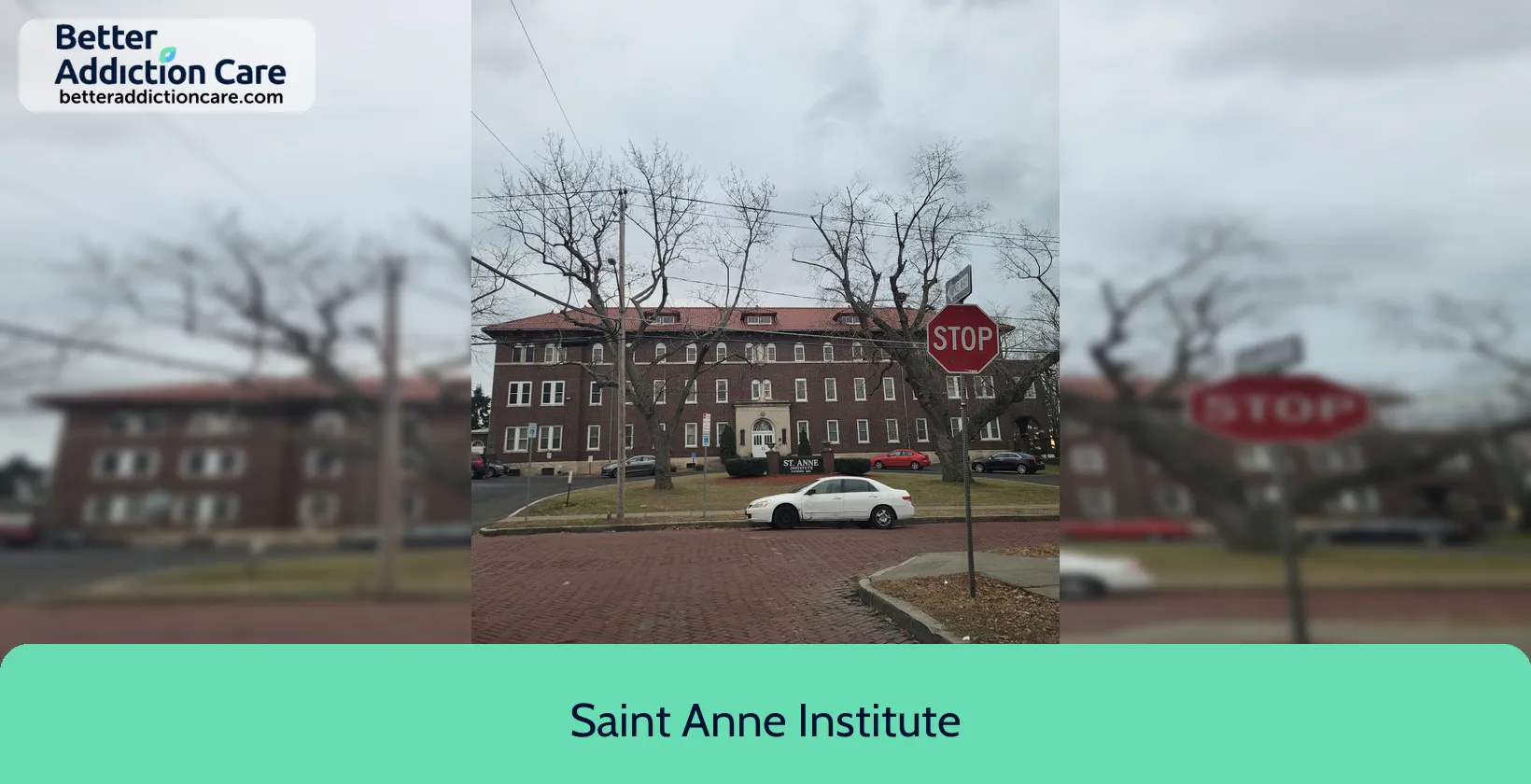Saint Anne Institute
Overview
Saint Anne Institute is a mental health treatment center for people seeking treatment near Albany County. As part of their treatment modalities for recovery, Saint Anne Institute provides couples/family therapy, group counseling, and cognitive behavioral therapy during treatment. Saint Anne Institute is located in Albany, New York, accepting cash or self-payment for treatment.
Saint Anne Institute at a Glance
Payment Options
- Cash or self-payment
- Medicaid
- Private health insurance
- State welfare or child and family services funds
- State education agency funds
Assessments
- Comprehensive mental health assessment
- Comprehensive substance use assessment
Age Groups
- Children/adolescents
Ancillary Services
- Case management service
- Court-ordered outpatient treatment
- Education services
- Psychosocial rehabilitation services
- Suicide prevention services
Highlights About Saint Anne Institute
6.65/10
With an overall rating of 6.65/10, this facility has following balanced range of services. Alcohol Rehabilitation: 8.00/10, Drug Rehab and Detox: 6.00/10, Insurance and Payments: 6.00/10, Treatment Options: 6.61/10.-
Alcohol Rehabilitation 8.00
-
Treatment Options 6.61
-
Drug Rehab and Detox 6.00
-
Insurance and Payments 6.00
Treatment At Saint Anne Institute
Treatment Conditions
- Mental health treatment
- Substance use treatment
- Co-occurring Disorders
Care Levels
- Hospital inpatient treatment
- Outpatient
Treatment Modalities
- Couples/family therapy
- Group counseling
- Cognitive behavioral therapy
- Dialectical behavior therapy
- Activity therapy
Ancillary Services
Languages
- Spanish
Special Programs
- Clients with co-occurring mental and substance use disorders
- Clients who have experienced trauma
- Children/adolescents with serious emotional disturbance (SED)
- Persons with post-traumatic stress disorder (PTSD)
- Persons 18 and older with serious mental illness (SMI)
Get Help Now
Common Questions About Saint Anne Institute
Contact Information
Other Facilities in Albany

7.23

7.17

7.60

7.56

7.28

7.59

7.33

7.55
DISCLAIMER: The facility name, logo and brand are the property and registered trademarks of Equinox, and are being used for identification and informational purposes only. Use of these names, logos and brands shall not imply endorsement. BetterAddictionCare.com is not affiliated with or sponsored by Equinox.

